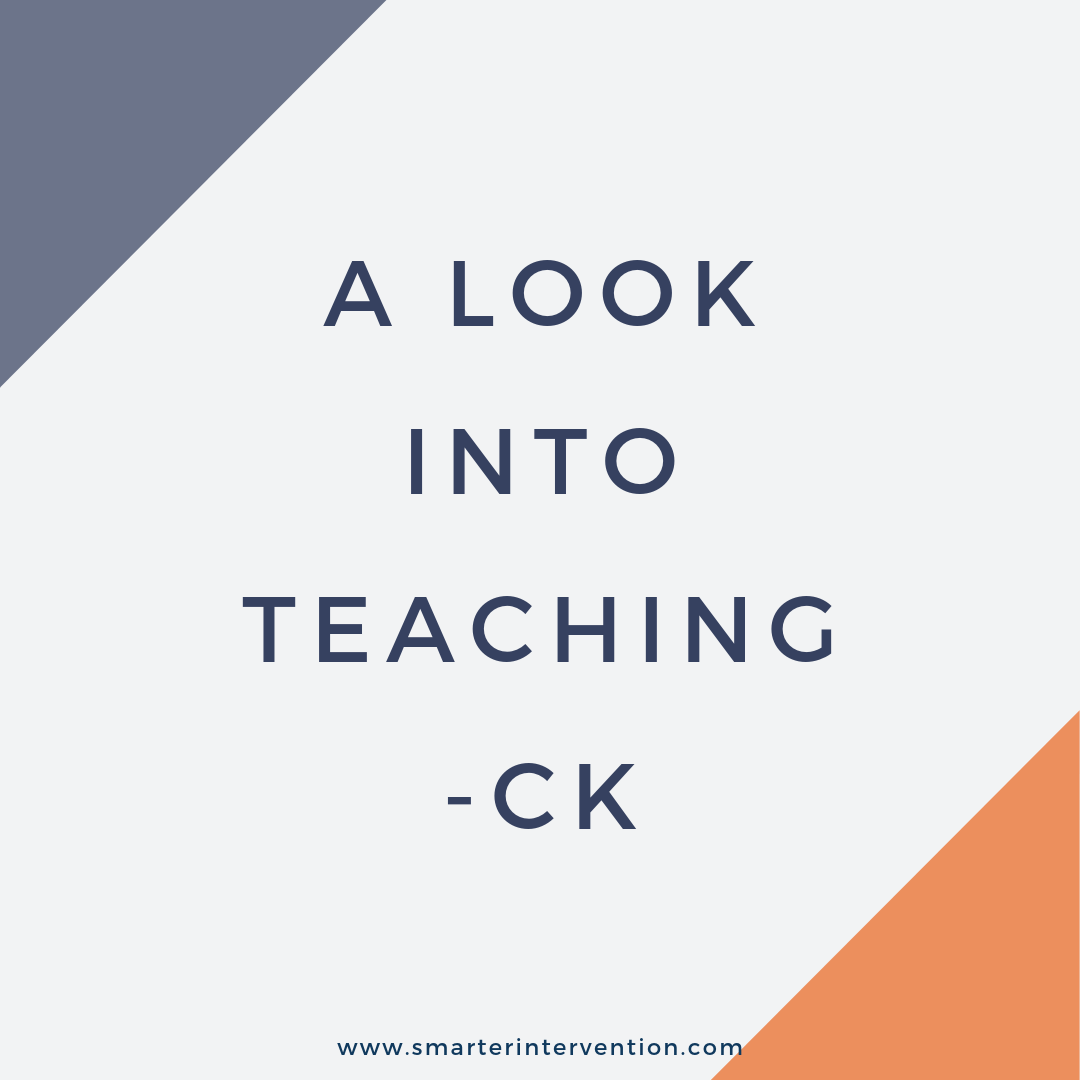Science-based literacy resources and articles
for families, educators and schools
Search by Category:
Categories
- Advocacy
- Authentic Literature
- Business
- Comprehension
- Data Tracking
- Differentiation
- Dyslexia
- Evaluation and Assessment
- Executive Functioning
- Games & Activities
- Helping My Child At Home
- How To
- IEP/504 Plan
- Lesson Planning
- Math
- Online Intervention
- Organization
- Parents
- Phonics
- Phonological Awareness
- Reading Comprehension
- Reading Fluency
- Research
- SLP
- Spelling
- Vocabulary
- Writing
What is a Sound Drill?
I'm sure we've all been there… in the middle of a lesson and our student says, "but I already know this!"
Can you relate?
As we work through the sound drill, it is important that we understand why this task is important and be able to explain to our students why it is a necessary part of our lesson. Keep reading to learn more!
Why You Should Use Games in Your Reading Instruction
We’ve learned that by turning simple reading tasks into games it will provide students with the repetition they need to see success. We try to turn EVERYTHING into games and you’d be surprised because even those of you with older students will see that they enjoy this “gamification” of instruction as well.
How to Support Early Reading Skill Development
Teaching early reading skills relies on working from the most basic skills and activities that students need to learn to be successful in the classroom and building a slow and steady progression of sounds. We recognize that teaching letter sounds and beginning blending is truly only one aspect to learning to read but it’s absolutely critical.
When Orton-Gillingham Wasn't Enough
When I started out in this field, shifting from working purely as an Assessment Specialist (psychometrist if we want to get fancy) working alongside psychologists I was enamored with this approach that I heard so much about. I took the fancy Orton-GIllingham trainings, I made OG based activities & games, created OG based lessons, followed an OG Scope and Sequence…but it wasn’t enough. Here’s what I did next.
How to Target Your Intervention to Get the Best Results
Oh boy, targeted instruction is a big one - so buckle up because we absolutely LOVE this topic. What does it mean to provide targeted literacy instruction? Well, we are so glad you asked. As you already know by now, we are huge fans of using the literacy processing triangle basically everywhere possible. Have you seen it?
The Biggest Intervention Tragedy: Not Applying Skills
Discover the key to intervention success: generalization. Learn why traditional approaches may fall short in helping students apply skills beyond sessions. Explore how connecting decoding to comprehension transforms outcomes. Uncover strategies to bridge skills and empower students for real-world reading success!
We Completely Misunderstood Multi-sensory Instruction...
Multisensory teaching is a popular concept in research-based reading instruction, but the problem is that most teachers, interventionists, specialists (including US!) completely misunderstand what is needed to create multisensory reading and spelling instruction. We will show you the most effective and easiest way to incorporate multisensory instruction without the mess!
A Look into Teaching -ck
Reading intervention for struggling readers, such as those with dyslexia or other reading disabilities needs to be systematic, sequential, cumulative, targeted, research-based…the list goes on and on. But how do you come up with a lesson plan that has reading and spelling activities that hits on all of these targets for your struggling readers? Well look no further, we are giving you behind the scenes access to our comprehensive lesson plans that leave nothing out for your struggling readers so that they can get to grade level once and for all and you can stop spending all your time planning.
What does a Structured Literacy Lesson Actually Look Like?
If you’ve been around with us for awhile you know how passionate we are about Structured Literacy. But don’t feel bad if you’re still wondering: What is Structured Literacy? It’s actually a rather new term that’s taking over what’s more been more popularly known as:Orton-Gillingham or (OG) Reading Instruction
4 Steps to Evidence-Based Decoding Instruction
There is a lot to providing high quality reading instruction. One of the most important pieces we always want to focus on is providing explicit decoding strategies. Research indicates that explicit instruction is one of the best ways to support our students’ reading ability!
Why Orton-Gillingham (OG) Reading Instruction?
What is so different about OG instruction?
A major benefit is that it meets the student where they are as opposed to assuming they indirectly picked up a rule/strategy without being given the explicit rule or pattern to follow. But equally as important OG is different than reading instruction they may have received previously because it teaches the "why" of our language.












